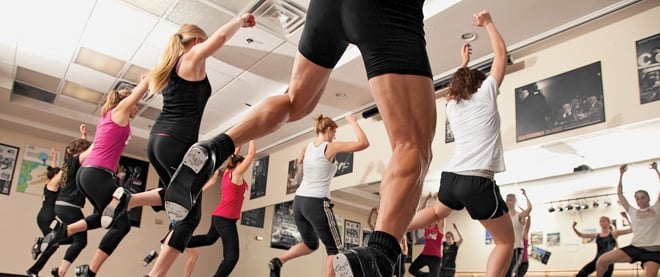Welcome to tap class, where ‘Tea for Two’ is no longer served
Tap enjoys an unlikely resurgence, to the songs of Radiohead and queen
Photograph by Roger LeMoyne
Share

Supertramp’s Breakfast in America blared from the speakers in a basement dance studio in downtown Montreal—Don’t you look at my girlfriend [tap, tap] she’s the only one I got. Fifteen dancers from the 35-strong Klaxson troupe were rehearsing for its fall show, devoted to the music of Supertramp and Queen. Meanwhile, the oeuvre of Nina Simone will be featured in a tap show this September by Rhythm Initiative. “We’re considering Radiohead, the Fugees and Led Zeppelin for future shows,” offered Allison Toffan, who founded the Toronto tap collective in 2011.
Welcome to tap class, where Tea for Two is no longer served. “When the old hoofers started to die off, tap went through a mourning period,” explained Dianne Walker, a legendary Boston-based tap teacher. They couldn’t imagine a tap world without old school hoofers Steve Condos and Jimmy Slyde. The general public, meanwhile, had no idea who they were. Notwithstanding a brief resurgence in the 1990s with shows like Tap Dogs, and the hip-hop influenced Bring in ’Da Noise, Bring in ’Da Funk, tap remained, for most of us, the domain of Sammy Davis Jr. movies.
That may be changing. “We’re on the brink of re-establishing tap as a respected art form,” noted Travis Knights, a tap sensation from Montreal who turns heads on the world stage. New tap festivals are springing up around the world, and tap is starting to show up at more mainstream dance and music festivals. And at the forefront of the new resurgence are Canadians. Vancouver’s festival is second only to Chicago’s, the biggest of its kind in the world. Our dancers hold an inordinate number of spots in the world’s few professional tap ensembles like the Tapestry Dance Company in Austin, Texas, and have performed in hit shows like Stomp and Tap Dogs.
In the past, part of the problem in growing audiences was an antipathy in the tap world between two factions: the showy Broadway style associated with jazz hands, and “hoofing,” the more traditional, so-called rhythmic style associated with Gregory Hines. Bring in ’Da Noise caused a renaissance in tap, said Walker, “but it also split us into two camps: Broadway tap and rhythmic tap.” Now the olive branch has been extended, and the two are putting aside their mutual indifference. Some call the new fusion of styles concert tap, but there’s no consensus. “We’re trying to find a healthy marriage,” said Matthew Shields, a virtuoso from Brantford, Ont., who is creating a much-anticipated show with original songs for the Vancouver International Tap Dance Festival this month. “Let’s face it, Broadway sells tickets.”
The next challenge is to find some respect for tap within academia. While there are programs for jazz dance and contemporary dance at North American universities, there are few courses in tap. “I’ve been fighting for 15 years, but it’s a hard sell,” said Heather Cornell, a New York-based dancer who is originally from Port Colborne, Ont., and the founder of CanTap, a troupe of rising Canuck stars. Oklahoma City University has some commercial tap, as does Capilano University in B.C., but otherwise, tap is hard to find. “The problem is, we became associated with pure entertainment, not art,” says Cornell.
Rivalries within the wider dance world don’t help. “Modern dance is even more heinous than ballet as a gatekeeper in academia,” laughed Lane Alexander, founder of the Chicago Human Rhythm Project and the Rhythm World Festival in Chicago. Vicki Adams Willis, the co-founder and artistic director of Decidedly Jazz Danceworks in Calgary, would agree. “Academia embraces conceptual dance,” she said, “but tap is inherently a pure dance form about nothing except the person in the moment. It’s very inward.”
Allison Toffan started the tap collective in Toronto, with its weekly jam sessions with tap dancers of all styles, to bring everyone together and challenge that notion of lone-wolf hoofers “woodshedding” in their basements. She is thinking about the music of Billy Joel or Hall and Oates for her next show. “I was considering the music of Queen myself, but it sounds like someone’s already doing it in Montreal. Crazy Little Thing Called Love would be great!”